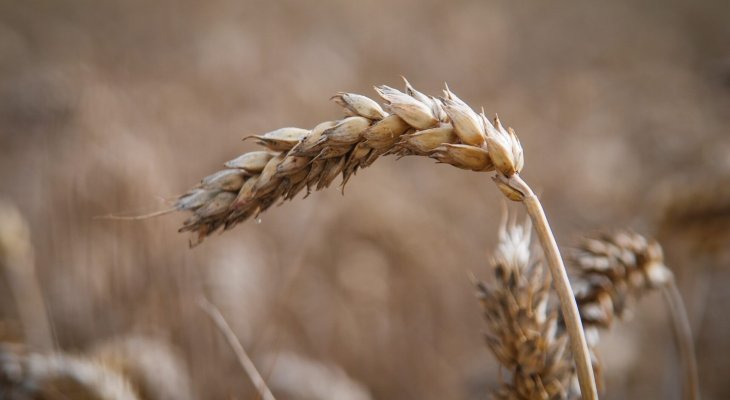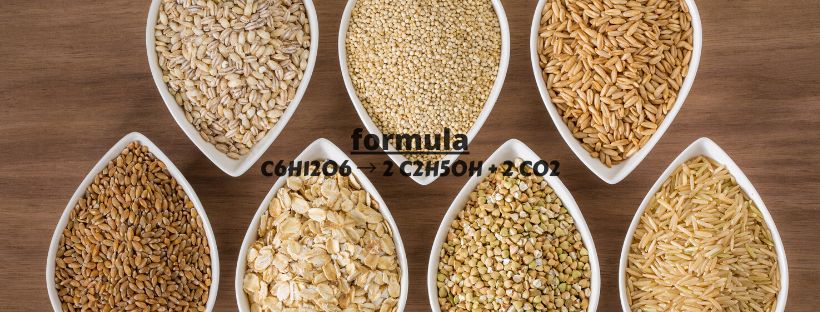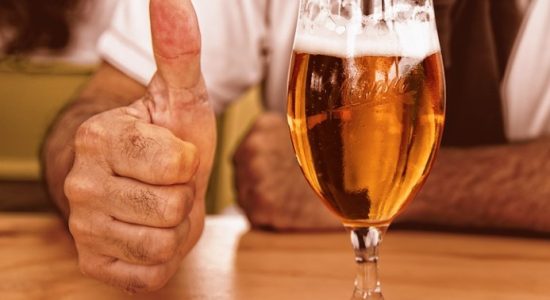Does Adding Sugar to Beer Make It Stronger?

Does Adding Sugar to Beer Make It Stronger?
If you are new to homebrewing, you might have learned that alcohol is a byproduct of the fermentation process, which takes place when the yeast converts the sugars derived from the grain.
You can change the ABV (Alcohol by Volume) by increasing the size of the grain bill, but this can change your beer recipe.
So, Can Adding Sugar To Beer Make It Stronger? The short answer is yes. If you want to increase the alcohol content of your beer you might find sugar especially attractive! Yeast cells really like sugar, so as the yeast consumes the sugar it will convert it into alcohol as a metabolic process.
Read Also: Best Beer Recipe Kits
How to Make Your Beer Stronger?
For most beers, you would want to use corn sugar or dry malt extract.
The general rule of thumb is that the amount of corn sugar you can use without a significant effect on the flavor of the beer is 10-15% of the total gravity of the beer. If you add one pound of corn sugar to your 5 gallon batch the net increase of your ABV will be approximately 1.2%
If you are into the thought of adding dry malt extract because you don’t want your beer to become sweeter then you will need the formula below to determine how much dry malt extract to use.
1. Measure your gravity (Let’s use 1.060 as an example) and round off the 1 at the left. What’s left? 060, which we’ll simply to 60
2. Multiply your gravity by the amount of beer you are brewing, so for 10 gallons we have
10 x 60 = 600
3. Next step is to determine the gravity of the beer you would like, for instance, 1.075
10 x 75 = 750
4. Dry malt extract has a value of about 44 points per gallon, so we take our target gravity points and subtract the original gravity
600 – 750 = 150, and then we divide the number by 44
150 / 44 = 3,40. This is the number of pounds of dry malt extract you should use to make your beer stronger

What is Gravity?
The first thing that pops into your head is probably Isaac Newton’s theory, but when brewing beer gravity is something completely else. A gravity reading refers to the total amount of dissolved solids in water, and what are the dissolved solids regarding beer? That’s right. Sugar.
Sugars are consumed by yeast to convert the wort into beer.
Beer gravity is read as a sequence of numbers that starts with 1 followed by a decimal to the thousandth place, like 1.035.
The original gravity (OG) is measured just before yeast is added. The reading of the OG will give the brewer a good idea of how high the ABV will be in the beer. For instance, if you want to brew a stout you want to have an OG reading of 1.080.
The high gravity reading is because the stout will have more sugar added to increase the ABV. The normal lager would be around 1.035-1.045 OG.
How gravity is measured?
A hydrometer measures the specific gravity of the beer before and after the fermentation. The hydrometer measures the density of your beer relative to the water.
Want to know more about hydrometers? Check out this article to get all the details.
A brewer might tell us that a hydrometer shows how much, dissolved sugar there’s into our wort, thanks to our malt extract, grain, and other sugars added on brew day.
Recommended Hydrometer To Measure Gravity
What Types of Sugar Should be Used?
Instead of using your traditional corn sugar, there are more experimental sugar types you can use such as the Belgian Candi. Some other sugars can change the gravity of the beer and even the taste.
- Belgian Candi: Is sucrose and can darken the beer and add body and add the flavor of caramel and honey.
- Brown Sugar: Brown Sugar creates a flavor reminding of rum and adds sweetness to the beer. Brown Sugar is regular sugar with a touch of molasses
- Molasses: Molasses is quite known to create stronger flavor profiles in the beer. It is a byproduct of the sugar refining process.
- Table Sugar: Mostly used as sugar for priming your beer
- Golden Syrup: This syrup is a result of refining sugar cane or sugar beet juice. Mostly used to increase ABV
- Maple syrup: Maple Syrup is made from, well you guessed it, maple tree. It is collected as a sap and then boiled to increase sugar concentration. Mostly used to increase gravity and ABV in your homebrew, and add maple notes to your beer.
- Malt Sugars: Malt sugar or syrup has been used a long time in home brewing, and can be used to increase ABV without the significant effect on the flavor
Read more about it here in one our of blog posts – Does Sugar Mean More Alcohol
What Effects Can Sugar Have To Your Beer?
In addition to increasing your alcohol content, sugar can also affect the color, flavor, and body of the beer.
If a change of flavor is something you would like to stay away from, you should always use corn sugar or dextrose since this sugar only will lighten the body and color of your beer without compromising flavor.
REMEMBER: Sugar can and will change the flavor of your beer if you are not careful.
Sugar Will Carbonate Your Beer?
When you add sugar to yeast, one of the byproducts that the yeast spits out is carbon dioxide and its the stuff that makes your beer go fizzy.
If you, as a homebrew, bottle your own beer, you know how sugar is used for carbonation. Corn sugar, table sugar or rice syrup can be used to force carbonate. If you do, there is little to no difference in the flavor of the beer.
5 facts about beer
- Cenosillicaphobia is the fear of having an empty beer glass.
- More Guinness beer is drunk in Nigeria than Ireland.
- When scientist Niels Bohr won the Nobel Prize in 1922, the Carlsberg brewery gave him a supply of beer piped directly into his house.
- The best-selling beer in the world is a Chinese beer called “Snow”.
- The world’s longest hangover lasted 4 weeks after a Scotsman consumed 60 pints of beer. Source





